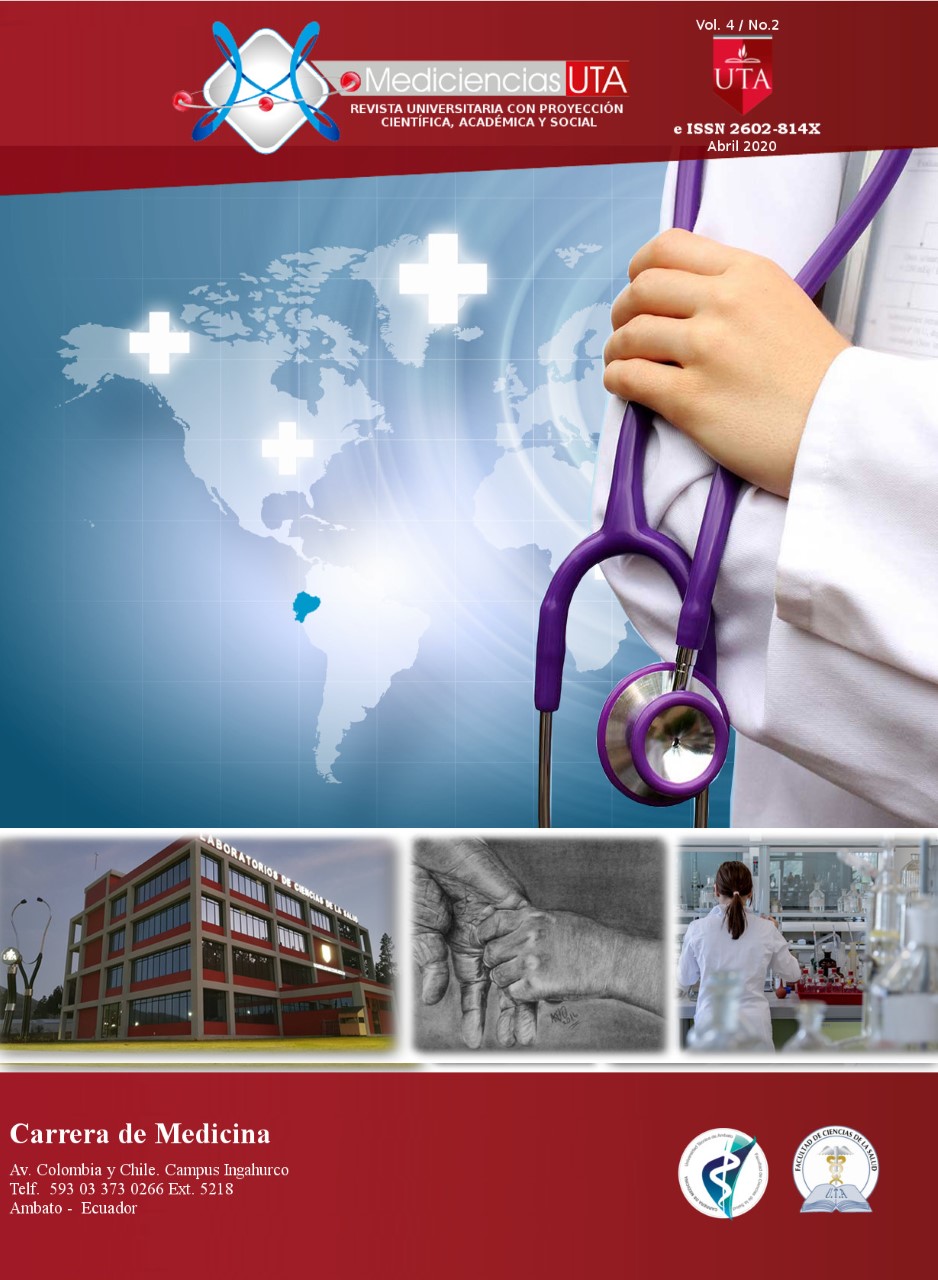Clinical uses of probiotics in pediatrics.
Main Article Content
Abstract
Introduction: Probiotics were described in the 18th century AD, they are living non-pathogenic
microorganisms, have been studied since ancient times thanks to their healing and preventive properties. Over
time, it has been possible to determine more accurately the mechanism of action by which they cause a
beneficial effect on organisms, especially in respiratory, digestive, urinary and allergic diseases. The present
work focuses on the usefulness of probiotics as an adjuvant therapy in pediatric pathologies.
Objectives: Critically evaluate the recent scientific literature on the clinical uses of probiotics in pediatrics.
Material and methods: A systematic review of the scientific literature published in the period 2015-2020 was
carried out. A search was conducted on the sites below using the following terms: ''probiotics,'' ''therapeutic
uses of probiotics,'' ''clinical uses of probiotics,'' ''uses of probiotics,'' ''Lactobacillus,'' ''Bifidobacterium,''
''Saccharomyces,'' '' '' probiotics in children,'' history of prebiotics", "probiotics in diarrhea", "probiotics in
urinary tract infection", "probiotics in respiratory infections", "Pediatric uses of probiotics", in databases:
Medline, Cochrane Database of Systemic Review, New England Journal of Medicine, American Journal of
Gastroenterology, Journal of Pediatric Gastroenterology Nutrition, BMJ, Oxford academic, Elsevier, US
National Library of Medicine National Institutes of Health.
Results:The theoretical references analyzed allowed to determine the most relevant aspects of clinical
applications of probiotics in pediatrics: viral acute gastroenteritis, persistent diarrhea, antibiotic-associated
diarrhea, prevention of diarrhea by Clostridium difficile, adjuvant treatment for eradication of Helicobacter
pylori, Inflammatory bowel disease: reservoritis and Necrotizing Enterocolitis.
Conclusions: Probiotic administration has been increased as an adjuvant treatment in multiple pathologies and the few or no
adverse effects have been demonstrated in paediatric patients, it is estimated that the risk of developing
bacteremia by ingested lactobacilli is less than one million consumers, which reinforces their high safety of
use in paediatric patients. Research on probiotics and their relationships with the microbiota continue to
provide new knowledge about their mechanisms and their impact on health, which has allowed to delve into
their main potential, based on antagonism antimicrobial, microbiota balance restoration and improvement to
immune response. There is serious recommendation about its benefit in acute infectious diarrhoea, antibioticassociated
diarrhea, necrotizing enterocolitis in the low-weight, prematurity newborn, its influence on the
immune system and other intestinal diseases, improve resistance to infections and allergy states, especially in
infants and young children. However, in urinary tract infection and respiratory infections there is no
conclusive evidence to recommend the use of probiotics. It is suggested to incorporate probiotics into the
national drug table, because as shortened in the duration of acute diarrhoeal disease is demonstrated, this
would reduce the hospital stay of paediatric patients, with the consequent reduction in health sector spending



